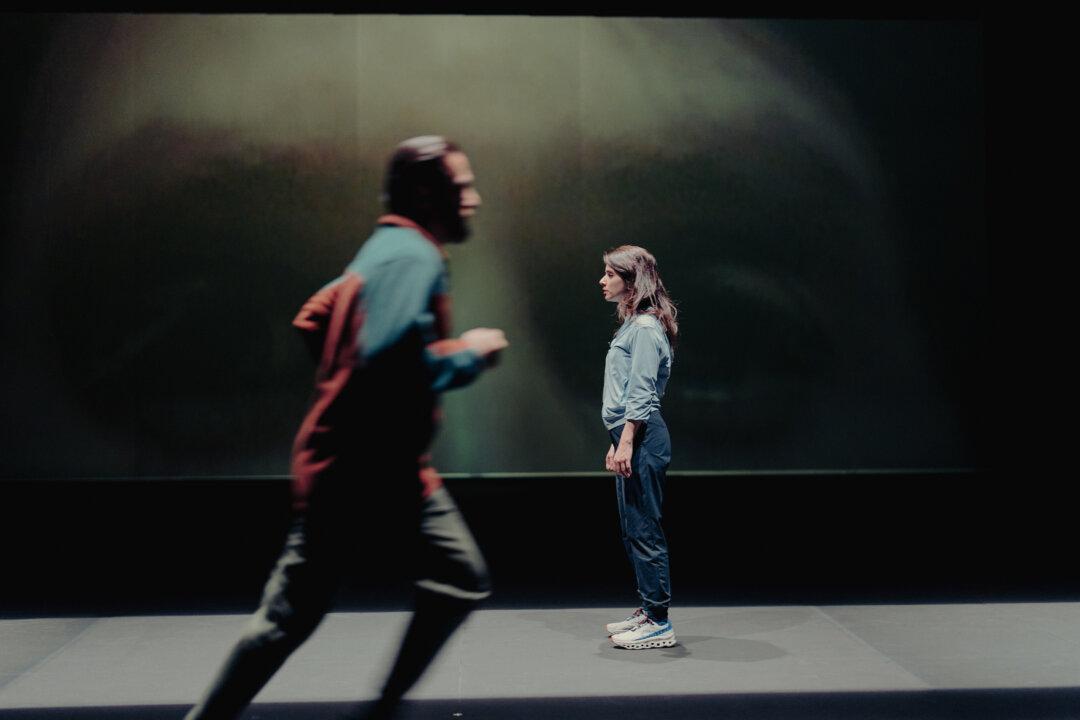NEW YORK—Marathon running: It’s the feeling of movement, of being alone with your thoughts, yet at the same time becoming part of a greater whole. This is even more important when the runner strides towards their own personal finish line. Such is the case in “Blind Runner,” an intensely personal theatrical experience drawn from fact. In it, running means far more than simply going from point A to point B. It’s currently presented by the Mehr Group at St. Ann’s Warehouse.
An Iranian woman (Ainaz Azarhoush) is languishing in a Tehran prison, where she will remain for another four years, six months, and 12 days due to comments and postings she’s made. A former marathon runner, her only physical and emotional outlet is running up and down a prison corridor. She calculates that if she runs back and forth through the corridor 1,132 times each week, she will complete a marathon by the time she’s released.





